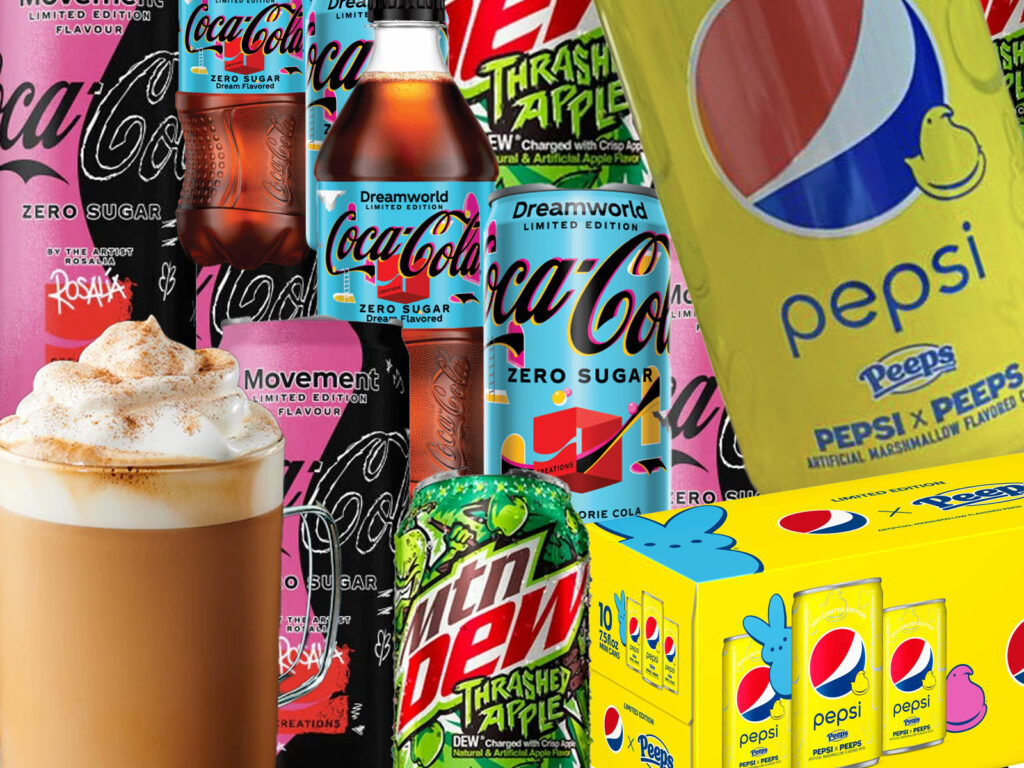With holiday-themed treats — such as Pepsi’s Easter Peeps-flavored soda — and the August rise of “pumpkin spice” everything, snack manufacturers know limited-edition products fuel demand.
Julio Sevilla, associate professor of marketing at the University of Georgia Terry College of Business, studies how marketers use the perception of scarcity to generate demand for their products. Through sneakers, handbags, and special-edition soft drinks, limited-time and limited-quantity goods are always good for business.
Why do companies make limited-edition goods?
Nike could make as many Air Jordans as people are willing to buy, but they make a limited number because it increases their perceived value and creates more demand. These manufacturers are doing the same thing.
There are a series of advantages to these promotions, but the overarching theme is that consumers are persuaded by the way they perceive value, and they’re more likely to value a product if marketers make their products seem scarce.
McDonald’s has done this repeatedly with the McRib. They bring it back every so often and people go nuts because they know it’s for a limited time.
Why do people want scarce things?
If you think about us — evolutionarily — we have learned to value scarce things as they are typically limited in availability because they are instrumental and everybody wants them. If we go back centuries or thousands of years ago, during times of duress — when there was not enough food — we had to work hard to get our food and valued foods that were higher in calories. So that’s why today we really like fat, and we like sugar because they were highly valuable and scarce during tough times.
Marketers know that can be a good strategy because we are hardwired that way. If we see something is scarce, we attribute more value to it.
The same thing happens at the supermarket. Even if you’re not familiar with a product category and you see — let’s say a wine — and there’s only one bottle left, you have no idea what brand it is but you take that as a cue to purchase it as opposed to a wine that is fully stocked. You see the empty wine and say, “Well, this must be good. Everybody else wants it, so I must get the last one.” That’s what these firms are trying to get at.
They know we are persuaded by scarcity; it’s a weapon of influence. So, they create that scarcity artificially. And it also has other advantages.
What other advantages?
There’s a novelty and fun factor to a lot of these. Like the marshmallow-flavored Pepsi or Starbucks’ specialty drinks. Starbucks knows its drinks are “Instagramable”. Sometimes the color of a new drink matters more than taste because they know young people are just going to be on Instagram and TikTok taking pictures with the drinks and generate word of mouth and more demand for their products. So, it also has a social media component to create conversation and look interesting. There are a lot of stimuli around us, so we select those products that stand out. If a brand wants to stand out, it must sell something different.
A lot of these products seem extreme — sweeter, creamier or just more caloric than the products available the rest of the year. Is there a reason the limited-edition snacks seem to be less healthy?
When something is framed as being a special opportunity — like the products we’ve been discussing — we take a license to indulge. We say, “OK, this Peeps Pepsi doesn’t come out all the time, so I have the right to go out and treat myself without worrying about my nutrition.” More specifically, what happens is that we focus on taking advantage of this rare opportunity and do not pay attention to our consumption. That’s the mechanism we found in a study we did on perceived scarcity and calorie estimations. Like at the holidays, people are more likely to gain weight, even people who usually track their consumption. They say, “Well, it’s the holidays, right? It’s a special opportunity. I have the right to do this.”
It’s a similar mechanism at work with the limited-edition sodas. They’re only here for a limited time, so even those of us who care about our sugar intake give ourselves temporary permission to consume these products.

